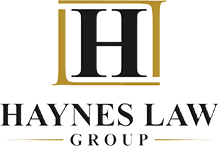Many of our clients hire us to help them obtain the Surplus from a Foreclosure Sale but they don’t know how much they are supposed to receive. What factors are involved in determining how much surplus you should receive from the foreclosure sale of your property? These factors could include, the type of foreclosure action, the amount owed on any liens on the property, the condition of the property at the time of the sale, and even the comparable prices of homes near the property being sold. Of course, there are more factors than this. I will discuss a few of them below.
One of the biggest factors is the type of foreclosure sale that is happening. If it is a first mortgage foreclosure sale, the price investors are willing to pay can be much higher than if it is a Homeowner’s or Condo Owner’s Association foreclosure sale. This is because when an investor purchases the property at a mortgage foreclosure sale, they know that they will be paying off the first mortgage that was used to purchase the property by the original owner. The first mortgage is also sometimes called the purchase money mortgage. The highest bidder at the auction is the new owner of the property, but if no one shows up or bids high enough, the foreclosing bank becomes the owner.
If the foreclosing bank becomes the owner, there won’t be any surplus. According to Florida Statute 45.032, if the bids are greater than what is owed, there will be surplus funds that will be kept by the court and distributed to the owner of the property at the time the lis pendens was filed, or to any subordinate lienholders who timely file a claim. This means that if you owe $100,000 on the mortgage and the property sells for$150,000, then the remaining $50,000 goes to you minus what a subordinate lienholder (if any) may get. The winning bidder wants to make a bid high enough to pay off the mortgage at the auction and also leave enough equity in the property to make some money from reselling the property after repairing or cleaning it up. This means the purchaser wants to be able to make a profit. Anything they pay over and above the amount due on the loan will ultimately go to you as surplus after paying off any other liens.
Additionally, this works the same way if the property is sold at a Homeowner’s or Condo Owner’s Association foreclosure auction, but there is more risk involved for the investor. The association may only be seeking enough funds from the auction to cover the past due fees. This is usually only a few thousand dollars and investors can generally purchase one of these auctioned properties for a very low amount. For instance, if the association is owed $10,000 in past due fees, that is all they will be seeking at the auction. Someone could purchase a property that is worth $200,000 at the auction for anything above the $10,000 that is owed. Any amount above what is owed becomes surplus funds and goes to the person who was the owner of the property at the time the lis pendens was filed or to any subordinate lienholder who timely files a claim. This is very risky because the investor will take the property “subject to” the purchase money mortgage that may still be on the property. I will discuss this in a future blog.
All of this is also contingent on the prices of comparable properties in the surrounding neighborhood and the condition of the property. The better the condition of the property and the properties that are near it, the more investors are willing to pay for it at auction. If a property is damaged from past hurricanes or from general disrepair, an investor may not want to bid very high because they will have to invest a good deal of money to repair the property before being able to resell it.
Bottom line is, there are a great number of factors that will go into how much surplus funds (if any) will be available to a former homeowner if their property is sold at auction. It is my job to make sure that whatever that surplus is, you will receive the maximum amount you have coming to you. While I cannot control how much your property sells for at auction or how much the initial surplus funds are, I am able maximize your surplus funds based on your individual circumstances. If your property has been sold at a foreclosure sale auction and you believe you may have surplus funds, please give me a call for a free consultation. I am happy to explain the entire process to you. I handle foreclosure surplus in every County in the State of Florida and I don’t get paid unless you do.


